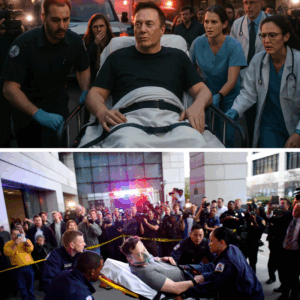In a bold move to retain the visionary leadership of Elon Musk, Tesla’s board of directors announced on August 4, 2025, a new compensation package granting the CEO 96 million shares valued at approximately $29 billion. Described as an “interim” award, this package aims to keep Musk focused on Tesla’s ambitious goals in artificial intelligence, robotics, and autonomous vehicles, especially after a Delaware judge struck down his previous $56 billion compensation plan in 2024. The decision, which comes amid Tesla’s pivot from electric vehicles to cutting-edge technologies, has sparked intense debate among shareholders, analysts, and the public. This article explores the details of Musk’s new compensation package, its implications for Tesla, and the ongoing legal and corporate governance controversies surrounding it.
The New Compensation Package: A Strategic Retention Plan
Tesla’s board approved the $29 billion package, granting Musk 96 million shares that vest after two years of service in a senior leadership role, such as CEO or chairman. Unlike the 2018 compensation plan, which tied Musk’s earnings to ambitious milestones like increasing Tesla’s market capitalization from $50 billion to $650 billion, this new award has no performance targets. Musk can purchase the shares at $23.34 each—a price set in 2018—and must hold them for five years before selling. At current market prices, the shares are worth over $300 each, potentially yielding Musk a massive windfall.
The board, led by chair Robyn Denholm and director Kathleen Wilson-Thompson, described the package as a “good faith” effort to honor the spirit of the 2018 plan, which was voided by Delaware Chancellor Kathaleen McCormick. In a letter to shareholders, they emphasized Musk’s unmatched contributions, noting that Tesla’s market capitalization has soared to over $1 trillion under his leadership. “We can all agree that Elon has delivered transformative and unprecedented growth,” they wrote, citing his role in making Tesla a leader in electric vehicles and now in AI and robotics. The board argued that retaining Musk is critical as Tesla navigates a competitive landscape, with rivals offering nine-figure packages to AI talent.
The package is designed to prevent Musk from diverting his attention to his other ventures, including SpaceX, xAI, Neuralink, and The Boring Company. In January 2024, Musk hinted at developing AI and robotics outside Tesla unless granted greater control, prompting concerns among shareholders that he might start a rival company. The new award, which increases Musk’s stake from 13% to approximately 20%, aims to secure his commitment through at least 2030.
The Legal Battle Over Musk’s Compensation
The 2025 package comes in the wake of a prolonged legal battle over Musk’s 2018 compensation plan, which was valued at $56 billion at the time and later grew to $101.4 billion due to Tesla’s surging stock price. That plan, the largest in U.S. corporate history, awarded Musk stock options for meeting 12 escalating milestones tied to market capitalization, revenue, and earnings. Musk achieved all targets, transforming Tesla from a niche automaker into a global powerhouse. However, shareholder Richard Tornetta sued in 2018, alleging that Musk exerted undue influence over Tesla’s board, which included close allies like his brother Kimbal Musk and friend James Murdoch.
In January 2024, Chancellor McCormick ruled the 2018 package “unfathomable” and unfair to shareholders, citing a “deeply flawed” approval process. She noted Musk’s 21.9% stake and personal ties with board members created a conflict of interest, undermining their independence. A second shareholder vote in June 2024, with 72% approval, failed to sway McCormick, who rejected the package again in December 2024, arguing that procedural violations could not be cured retroactively. She also awarded Tornetta’s legal team $345 million in fees, a fraction of their $5.6 billion request. Tesla has appealed to the Delaware Supreme Court, a process that could take over a year.
The legal setback prompted Tesla to reincorporate in Texas, where shareholder lawsuits require a 3% ownership threshold, making future challenges to Musk’s compensation more difficult. The board’s decision to grant the $29 billion package in Texas reflects a strategic move to insulate Musk’s pay from further litigation. If the Delaware appeal reinstates the 2018 plan, the new shares will be forfeited to avoid “double dipping.”
Controversy and Criticism
The new compensation package has ignited fierce debate. Supporters, including Wedbush analyst Dan Ives, call Musk Tesla’s “top asset” and argue that his leadership justifies the extraordinary award. They point to Tesla’s 2,000% stock price increase over the past decade, far outpacing the S&P 500’s 200% rise, and his role in launching the robotaxi service and Optimus humanoid robot. “This is a pop-the-champagne moment for Musk and Tesla shareholders,” Ives wrote, noting that the package ensures Musk’s focus on Tesla’s AI-driven future.
Critics, however, view the package as excessive, especially given Tesla’s recent struggles. The company reported a 16% drop in automotive revenue and a second consecutive quarter of declining sales in July 2025, alongside brand damage from Musk’s political activities, including his role in the Trump administration’s DOGE initiative. New York City Comptroller Brad Lander called the $29 billion award “obscene,” arguing that Musk’s “inattention to daily responsibilities” and Tesla’s falling stock value—down 18% in 2025—do not justify the payout. Illinois State Treasurer Michael Frerichs echoed this, stating, “The board should focus on long-term planning, not paying fealty to a greedy CEO.”
Corporate governance experts have raised concerns about Tesla’s board, which McCormick previously criticized for lacking independence. The presence of Kimbal Musk and other allies, combined with the absence of performance targets in the new package, has fueled accusations that the board prioritizes Musk over shareholders. “This is a repackaged version of what was ruled improper,” said Charles Elson of the University of Delaware, calling the decision a dismissal of the Delaware court’s ruling.
Musk’s Value to Tesla
Musk’s defenders argue that his compensation reflects his unique ability to drive Tesla’s growth. Since 2018, Tesla’s market capitalization has grown from $50 billion to over $1 trillion, surpassing the combined value of traditional automakers like Ford and GM. The 2018 plan, though controversial, incentivized Musk to achieve milestones that seemed unattainable, such as a $100 billion market cap for the first tranche and $50 billion increments thereafter. His focus on AI and robotics, including the robotaxi launch in Austin and the development of Optimus, positions Tesla as a tech leader beyond electric vehicles.
Musk’s wealth, estimated at $418 billion as of February 2025, is largely tied to his 13% Tesla stake ($158 billion) and SpaceX holdings ($136 billion). The new package could increase his net worth by nearly 7%, solidifying his position as the world’s richest person. Yet, Musk has emphasized that his motivation is not financial but rather to secure control to steer Tesla’s direction, particularly in AI. In a 2024 investor call, he stated, “I need enough control to ensure Tesla goes in a good direction, but not so much that I can’t be thrown out if I go crazy.”
Implications for Tesla’s Future
The compensation package underscores Tesla’s strategic shift toward AI and robotics, a pivot Musk has championed despite declining vehicle sales. The robotaxi service, launched in 2025, aims to disrupt transportation, while Optimus could revolutionize industries like manufacturing and healthcare. However, these ventures are not yet profitable, and Tesla faces challenges, including the loss of EV tax credits and competition from Chinese automakers like BYD. Musk acknowledged potential “rough quarters” in a July 2025 earnings call, highlighting the risks of this transition.
The package also raises questions about corporate governance. The Delaware rulings exposed flaws in Tesla’s board processes, prompting calls for reform. By moving to Texas, Tesla aims to shield future decisions from similar lawsuits, but critics argue this undermines shareholder rights. The $25 billion accounting charge associated with a new package of similar scale to the 2018 plan could further strain Tesla’s finances, especially if sales continue to falter.
A Polarizing Decision
Elon Musk’s $29 billion compensation package is a testament to Tesla’s belief in his indispensable role, but it also highlights the tensions between rewarding innovation and ensuring fair governance. For supporters, the award is a necessary investment in a leader who has transformed Tesla into a trillion-dollar company. For critics, it represents a board beholden to Musk, prioritizing his wealth over shareholder value. As the Delaware appeal looms, the outcome will shape not only Musk’s fortune but also the future of executive compensation in corporate America. For now, Tesla’s bet on Musk signals confidence in his vision to redefine the company’s future, even as it navigates a challenging present.





